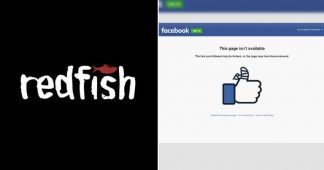22 Dec, 2021
European satellite operator Eutelsat has removed the 24-hour German-language RT DE channel from its platform under pressure from Berlin. RT has called the move illegal.
German media regulator MABB (Medienanstalt Berlin-Brandenburg) has forced European service Eutelsat to remove the broadcast of RT’s new Moscow-based German-language channel RT DE from its 9B satellite on Wednesday.
“It is inappropriate for the German regulator, MABB, to overreach and ignore the European Convention on Transfrontier Television, under which it is subject, thereby forcing Eutelsat to remove RT DE from the carrier solely due to the unsubstantiated and factually flawed claims of the German regulator,” RT’s press service pointed out.
“We believe this amounts to illegal pressure and are confident this action will be redressed by the courts. We will be seeking all possible remedies against the German regulator, and our audience can continue to access our content across multiple platforms and online,” it said.
Eutelsat covers Central and Eastern Europe, being especially popular among Germans. The Paris-based company said it acted in response to an address by Berlin and the European Regulators Group for Audiovisual Media Services, who insisted that RT DE’s broadcast must be curbed.
MABB maintains that RT DE is required to obtain a German license to broadcast the channel live on its de.rt.com website. The regulator said RT has until December 30 to explain why it’s operating without a proper license in Germany.
RT has consistently denied any wrongdoing, pointing out that – while the channel is in German language – RT DE is broadcast from Moscow by the ANO TV-Novosti company. Most of the channel’s staff of around 400 people also work in the Russian capital, while the German-based RT DE Productions only creates content ordered by ANO TV-Novosti.
RT DE signal is originating in Serbia. The channel has received a broadcasting license on December 6, 2021, and it is valid through 2029.
While Serbia is not a member of the EU, both Belgrade and Berlin are signatories of the European Convention of Transfrontier Television (ECTT). Germany ratified the treaty in 1991, while Serbia has been a party to it since 2010.
Article 4 of the ECTT says the parties “shall guarantee freedom of reception and shall not restrict the retransmission on their territories of programme services which comply with the terms of this Convention.”
RT expressed confidence that the court will annul Berlin’s decision, and RT DE will again be made available to Eutelsat clients.
RT’s German-language channel can now be watched via SmartTV, the RT News app, and RT DE’s official website (https://de.rt.com/livetv/).
RT DE started broadcasting last week from its studio in Moscow. Just hours after the launch, YouTube deleted the channel’s page, saying it was created in violation of earlier restrictions that had been placed on the outlet.
RT has faced numerous obstacles in attempting to launch a live TV channel focused on the German market. Its application for a German-language broadcast license in Luxembourg was denied in mid-August. Multiple outlets reported that the government in Berlin had influenced the decision, although Chancellor Angela Merkel officially denied doing so. Earlier this year, Frankfurt’s Commerzbank also shut down RT DE’s accounts, without explanation. Several other German banks likewise refused to do business with the broadcaster.
RT will “fight” for its German channel’s right to broadcast regardless of “what tomorrow will bring” even amid “unprecedented pressure,” believes Anna Belkina, the network’s deputy editor-in-chief, who says the law is on its side.
Published at www.rt.com
Also read
German dangerous stupidity!
We remind our readers that publication of articles on our site does not mean that we agree with what is written. Our policy is to publish anything which we consider of interest, so as to assist our readers in forming their opinions. Sometimes we even publish articles with which we totally disagree, since we believe it is important for our readers to be informed on as wide a spectrum of views as possible.











